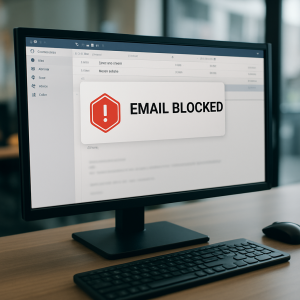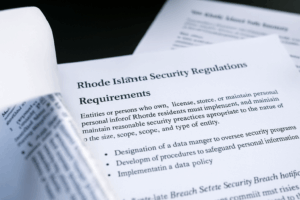Today, the term “data leak” has become synonymous with vulnerabilities that can jeopardize personal and organizational security. Recently, a significant data breach involving the leakage of approximately 10 billion passwords via an online hacking forum has highlighted the severity of these threats. This compilation of breached passwords, encompassing both historical and recent incidents, poses a profound risk of credential stuffing attacks. Such attacks involve malicious actors using compromised passwords to gain unauthorized access to multiple accounts across various platforms, amplifying the potential damage caused by the breach.
Moreover, the impact of a data leak extends beyond immediate financial and operational consequences. It can erode customer trust and loyalty, leading to long-term damage to an organization’s brand reputation. Customers and stakeholders increasingly expect companies to prioritize data security and privacy, making it imperative for businesses to invest in comprehensive cybersecurity measures. By demonstrating a commitment to protecting sensitive data through stringent policies and proactive security measures, organizations can enhance their credibility and maintain competitive advantage in today’s digitally-driven marketplace.
What is a Data Leak?
A data leak, often interchangeably referred to as a data breach, occurs when sensitive or confidential information is accessed, disclosed, or stolen without authorization. The recent incident reported by Semafor underscores the critical nature of data leaks, particularly concerning the security implications of leaked passwords. When passwords are compromised, individuals and organizations face heightened risks of cyber attacks such as identity theft, financial fraud, and unauthorized access to personal or proprietary information. Understanding the mechanisms and consequences of data leaks is crucial for implementing effective preventive measures.
Explore our Managed Service Offerings
Worcester’s Top Managed Service Provider
How Do Data Leaks Happen?
Data leaks can occur through various vectors, each exploiting vulnerabilities in security protocols or human error:
Cyber Attacks
Sophisticated hacking techniques, malware, and phishing schemes target weaknesses in software systems or network defenses, allowing cybercriminals to gain unauthorized access to sensitive data.
Insider Threats
Employees or individuals with legitimate access to sensitive information may inadvertently or maliciously disclose data, either through negligence or with malicious intent.
Weak Security Practices
Inadequate encryption methods, poor password management, and outdated security software create vulnerabilities that cyber attackers exploit to access confidential information.
Understanding these avenues of vulnerability is essential for organizations and individuals looking to strengthen their cybersecurity posture and prevent data leaks.
The Impact of Massive Data Leaks
The consequences of a significant data leak can be profound and multifaceted:
Financial Implications
Businesses may incur financial losses due to regulatory fines, legal fees, and remediation costs associated with a breach. Moreover, the loss of customer trust and potential revenue decline can have lasting economic repercussions.
Reputational Damage
Organizations risk significant reputational harm as news of a data breach spreads. Customer trust and brand loyalty may diminish, impacting market share and competitive advantage.
Individual Harm
For individuals, compromised data can lead to identity theft, unauthorized financial transactions, and invasion of privacy. The emotional and financial toll of such violations can be devastating.
Preventing Data Leaks: Best Practices
To mitigate the risks associated with data leaks, proactive measures are essential. Organizations should start by implementing a comprehensive data security strategy that encompasses multiple layers of protection. Here are some ways to prevent data leaks:
Use Strong, Unique Passwords
Adopting complex passwords with a combination of letters (uppercase and lowercase), numbers, and special characters reduces the risk of credential stuffing attacks.
Implement Two-Factor Authentication (2FA)
Adding an extra layer of verification beyond passwords enhances security by requiring additional proof of identity.
Encrypt Sensitive Data
Encryption renders data unreadable to unauthorized users, even if intercepted, ensuring confidentiality and compliance with data protection regulations.
Regular Security Updates
Keeping software and systems up to date with the latest patches and security updates minimizes vulnerabilities exploited by cyber attackers.
Educate and Train Employees
Building a culture of cybersecurity awareness among staff through training programs and simulated phishing exercises strengthens defenses against insider threats and social engineering attacks.
Monitor and Respond to Anomalies
Implementing robust monitoring tools and incident response protocols enables organizations to detect and mitigate data breaches promptly.
Discover our IT Solutions for Your Industry
Worcester’s Top Managed Service Provider
How Triton Technologies Can Help
Triton Technologies specializes in comprehensive cybersecurity solutions designed to prevent, detect, and respond to data leaks effectively. With our expertise in threat intelligence, vulnerability assessments, and incident response planning, Triton Technologies offers tailored strategies to protect organizations from the evolving landscape of cyber threats. Our services include:
Advanced Threat Detection
Leveraging cutting-edge technologies and threat intelligence to detect and mitigate potential data breaches before they escalate.
Compliance Guidance
We assist organizations in navigating regulatory requirements such as CTDPA, HIPAA, PCI-DSS, and others, ensuring data protection and regulatory compliance through our Compliance Management Solutions and best practices implementation.
Employee Training
Conducting customized cybersecurity awareness programs to educate employees on recognizing and mitigating cyber threats, thereby strengthening the human element of cybersecurity defenses.
24/7 Monitoring and Response
Providing continuous monitoring of network activities and immediate response to suspicious incidents to minimize the impact of data leaks.
By partnering with Triton Technologies, organizations can proactively safeguard their sensitive information and uphold trust with stakeholders in an increasingly digital world. We remain committed to empowering businesses with robust cybersecurity solutions, ensuring resilience against data breaches and maintaining the integrity of their digital assets. Triton Technologies, with offices in Worcester, MA, Rhode Island, Connecticut, New York, the British Virgin Islands, and Dublin, Ireland, provides comprehensive Managed Services and IT Support Solutions. Contact us today to learn how you can safeguard your data.
Discover Our Compliance Management Solutions
Worcester’s Leading Provider of Compliance Services



